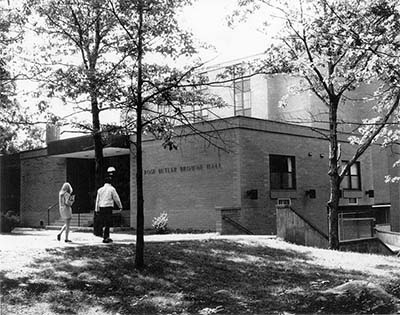The name of Rose Butler Browne is venerated on the campus of North Carolina Central University (NCCU). Born in Boston in 1897, Browne was an influential educator, civil rights activist, and community leader in Durham. The Rhode Island College paper The Anchor called her “a leader in Negro higher education in the South.” She was the first black woman to graduate from Rhode Island College (now the University of Rhode Island) and the first black woman to receive a doctorate in education from Harvard University.

In 1948 Dr. Browne began her tenure as chair of the Department of Education at North Carolina College for Negroes (later NCCU) in Durham. As chair, Browne oversaw the addition of a three-story education building; led the college to accreditation with the National Council of the Accreditation of Teacher Education; and established the state’s first education doctorate program. She also introduced the “Pleasurable Reading Program” to promote literacy and reading.
Browne received national recognition by refusing to place teachers into jobs in West Virginia due to the state’s racially discriminatory pay practices. The move resulted in a shortage of teachers in the state, prompting West Virginia to revise its pay policy. During her tenure as the Mid-Atlantic director of Alpha Kappa Alpha sorority (the nation’s oldest black sorority), she oversaw the organization of new chapters throughout the region. Browne was involved with organizations such as the Girl Scouts, Young Women’s Christian Association, and the North Carolina Federation of Negro Women’s Clubs.
During his administration, Gov. Terry Sanford appointed Browne to a committee charged with studying the needs of North Carolina’s mentally challenged children. In 1963 Browne was recognized for “outstanding service as a teacher, leader, and scholar” with a Hamilton Watch Award. In 1969 she co-authored her autobiography, Love My Children: The Education of a Teacher, with James W. English. Browne was awarded several honorary degrees. Rose Butler Browne Hall, a residence hall on the campus of Rhode Island College, is named for her. She died on December 1, 1986.